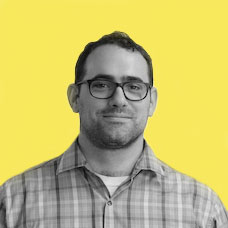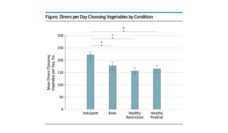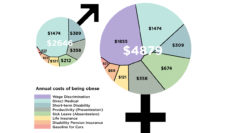Public Health Post: You have studied weight bias and stigma. How did you get involved with that research?
Fatima Cody Stanford: When you look at people who have overweight and obesity–and I want to make sure we capture it in that way–the language we use with that patient population matters, so we never refer to them as “obese patients.” Obese is a label, where we know obesity is a disease.
Often when patients come in who have obesity, it’s an emotional encounter with them. Talking to them about other disease processes may not evoke emotion in the same way. Patients with obesity have been blamed for their current status as if it’s all their fault. Many people make assumptions about what they’re doing or not doing with regards to addressing their excess weight, so if a patient happens to weigh 300 pounds the assumption is that they must eat unhealthy foods, that they must not be exercising, and that they must not have done anything to really delve into their weight issue.
What I find is that many times they’ve tried more things than anybody could ever imagine. The fact that their body is the type that puts on weight really is more of a reflection of how their brain regulates weight and how they interact with an environment that happens to promote excessive weight gain. What I try to do is take away that blame that they experience because when they internalize that weight bias, what that means is they won’t seek care. Or when they seek care from a physician or another healthcare provider, they are met with significant judgment about their status and/or worth and that leads to poor health outcomes.
When they internalize that bias, we know it affects their blood pressure and increases stress hormones. Stigma leads to actual poor health outcomes. My goal when I’m working with patients is not to blame them but to offer them tools to help them be their best selves.
PHP: Can you tell us about the tools we have?
When patients come into our offices, most doctors typically tell them two things. Number one, you need to eat less. Number two, you need to exercise more. What we know is that obesity is much more complex; you and I can eat the same meal and our bodies can process it differently. Your body may decide to hold onto 90% of that meal, and my body may decide to hold onto 10%. Our brains decide how to process weight.
The idea of being able to evaluate calories in, calories out, like, “Oh, if I measure my calories and keep track of that then I should be exactly the size I want to be.” It’s actually a fallacy. There was a wonderful article that came out a few weeks ago that talked about the death of the calorie. We believe the calorie exists but the way that we look at it is completely inaccurate.
So, I would say before we immediately accuse someone of their poor state, we should be aware of the complexity of pathophysiology.
As far as tools go, there’s pharmacotherapy, the medications used to treat obesity. The evidence shows that these medications are highly effective, but only one percent of the population that meets the criteria for the use of medications for the treatment of obesity actually get access to them.
We don’t do this with any other disease process. If a patient has high blood pressure, we give them medicines. If a patient has depression, we give them medicines. If a patient has asthma, we give them medicines.
If you have severe obesity I would be more likely to consider something like metabolic or bariatric surgery. I don’t see surgery as a failure. I see it as using the appropriate tool for the size of the problem much like the way we would look at a patient who has cancer with a focal solid tumor. We don’t just let it sit there. We take the cancer out with the most aggressive measure.
In the same way, we should really be thinking about obesity. If patients have severe obesity and other modalities like lifestyle and/or medications have not produced good outcomes, then we need to become more aggressive to treat them with the best tool available based upon the best evidence in the literature.
PHP: What is the state of science education and policymaking around obesity?
Dismal at best in every single country in the world. I think that’s tragic because we know that 10 percent of the world’s population has obesity, so this is not an issue that is just germane to what we experience here in the United States.
Currently, we’re trying to get through Congress the T.R.O.A., or the Treat and Reduce Obesity Act. One of the key tenets of the Treatment and Reduce Obesity Act is to ensure adequate coverage for behavioral strategies to approach obesity, meaning coverage of work that persons might do with a dietician. Right now, the only way you’re guaranteed coverage of visits with a dietician is if you already have diabetes, so you can have pre-diabetes and obesity and you’re not covered, but once you get diabetes now we’ll give you a dietician. That’s brilliant. Of course, I’m being sarcastic there.
Obesity is a disease, and I’m trying every day to think of different strategies to raise awareness surrounding what we’re doing and what we’re not doing and how we can do better.
Photo courtesy of Dr. Fatima Cody Stanford














